Emergency Paid Leave Would Protect Workers, Businesses, Schools and Public Health
FARGO, ND — Rep. Karla Rose Hanson (D-Fargo) and Sen. Erin Oban (D-Bismarck) today proposed an Emergency Paid Leave Fund to protect workers as the coronavirus pandemic continues and cases rise in North Dakota. The Emergency Paid Leave Fund would use CARES Act funds to help workers stay home when they are sick with COVID-19 or after they have been exposed. The fund would serve as an important complement to recent efforts by the state to support businesses in their efforts to inspire and improve consumer confidence to return to the marketplace. View the full press conference here.
Rep. Karla Rose Hanson said:
“Whether people work at a business, in a school or a health care facility, they should be able to stay home when they are sick – for their own health and for the health of their co-workers and the public. However, far too many people go to work when they are sick,” said Rep. Karla Rose Hanson. “A paid leave program can help reduce the spread of infection and prevent outbreaks at places of work, schools and health care facilities like nursing homes and clinics.”
Sen. Erin Oban said:
“At a time when employers are asking workers to return to the workplace and workers are rightly asking for basic protections, too many North Dakotans will continue to face the difficult choice of staying home or receiving a much-needed paycheck because they lack paid time off or they’ve already used up their paid leave,” said Sen. Erin Oban. “Our paid leave program will help families, support North Dakota’s businesses and economy, help schools to safely stay open, and contribute to greater public health in managing this pandemic. It’s a win-win-win-win.”
Terri Hedman, a registered nurse and Senate District 46 candidate, said:
“The Centers for Disease Control and the ND Department of Health say to stay home if you are sick or if you’ve been exposed to someone with COVID-19,” said Terri Hedman, a registered nurse and candidate for state senate in Fargo. “People should not have to choose between their physical and economic well-being. A highly infectious disease in the workplace such as COVID-19 is a danger to many. As fall and winter approach, along with more indoor activity, infection rates will likely rise. Providing supplemental paid leave will help people make the right choice to stay home.”
How would the fund work?
- The proposal would use $20 million from the $1.25 billion in CARES Act funding that North Dakota has received. It would create a fund to pay qualified employees through their employers.
- Eligible workers would receive up to four weeks of pay, with a cap of $1,500 a week, if they are unable to work due to a COVID-19 diagnosis for themselves or a member of their household, or if they have been advised to quarantine due to close contact with a person who has COVID-19, or if their child’s school or daycare is closed due to the pandemic.
- The fund would be in effect through the end of the year due to the requirement to spend CARES ACT dollars in 2020.
- This supplementary leave will especially benefit employees who have already used all their employer-provided leave for the year, as well as employers such as schools that don’t qualify for federal tax credits for pandemic-related leave.
The six-member Emergency Commission is expected to meet again this summer to allocate the remaining $318 million of North Dakota’s CARES Act funding, which must be spent in 2020.
2021 Legislative Session
Hanson and Oban also announced that they plan to introduce a bill during the 2021 legislative session to address the long-term need for paid family leave beyond the pandemic crisis.
Oban said:
“This emergency paid leave fund addresses the immediate needs of families, schools and businesses caused by the pandemic,” Oban said. “But that impossible choice of collecting a paycheck or caring for yourself or a loved one was a problem that existed before the pandemic and it will continue after it. North Dakota working families deserve a long-term paid family leave solution, too.”
###

